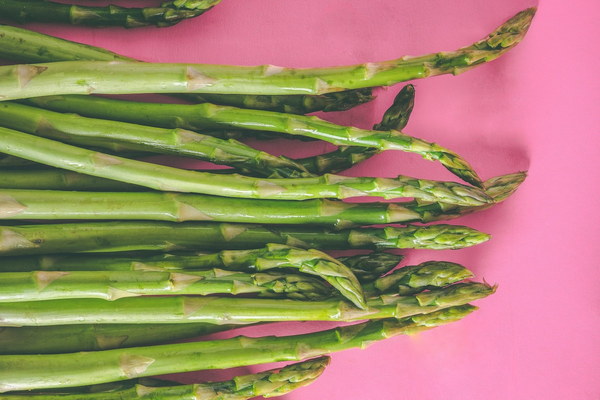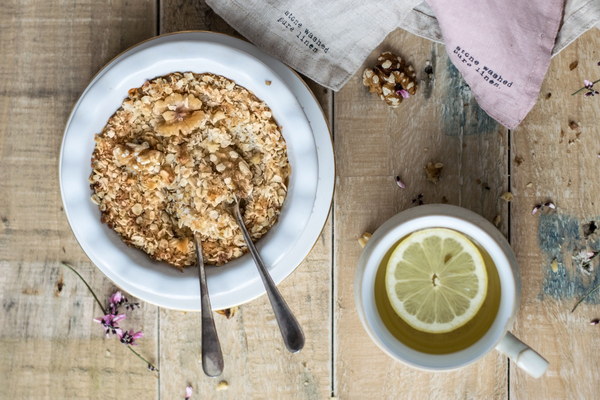Harmonizing Your Lungs Traditional Chinese Medicines Guide to Lung Care
In the realm of Traditional Chinese Medicine (TCM), the lungs play a crucial role in maintaining overall health and vitality. According to TCM, the lungs are responsible for the exchange of oxygen and carbon dioxide, as well as the regulation of water and fluid balance in the body. To ensure optimal lung health, TCM offers a variety of practices and dietary recommendations that can help you nurture and protect your respiratory system. Here's a comprehensive guide to lung care in TCM.
1. Breathing Exercises
One of the most fundamental aspects of TCM lung care is the practice of breathing exercises. These exercises help to improve lung capacity, enhance oxygen intake, and promote relaxation. Here are some popular breathing techniques:
- Budha Pranayama: This breathing exercise focuses on balancing the breath to nourish the lungs. Inhale deeply through the nose, hold your breath for a few seconds, and then exhale slowly through the mouth.
- alternate nostril breathing: This practice involves inhaling through one nostril and exhaling through the other. It helps to balance the energy flow in the body and improve lung function.
- Diaphragmatic Breathing: This exercise involves breathing deeply into the diaphragm, rather than shallowly into the chest. It can be practiced by lying down, placing one hand on the chest and the other on the abdomen, and inhaling deeply while the hand on the abdomen rises.
2. Acupuncture
Acupuncture, a key component of TCM, involves inserting fine needles into specific points on the body to stimulate the flow of Qi (vital energy). Acupuncture can be particularly beneficial for lung care, as it helps to remove obstructions in the respiratory system and strengthen the immune system.
3. Herbs and Supplements
TCM utilizes a variety of herbs and supplements to support lung health. Some commonly used herbs include:
- Bai Zi Ren (Biota Seeds): This herb helps to clear heat from the lungs, alleviate coughs, and reduce phlegm.
- Xuan Shen (Scrophularia Nodosa): This herb is known for its cooling properties, which help to nourish the lungs and alleviate dryness.
- Gan Cao (Licorice Root): This herb is a staple in TCM formulas and is often used to support the immune system and reduce inflammation.
4. Diet and Lifestyle
A balanced diet and healthy lifestyle are essential for maintaining lung health in TCM. Here are some tips:
- Stay Hydrated: Drinking plenty of water helps to thin mucus and make it easier to expel from the lungs.
- Avoid Pollutants: Exposure to smoke, dust, and other irritants can harm the lungs. Try to minimize your exposure to these pollutants.
- Warm Foods: In TCM, warm foods are believed to be beneficial for the lungs. Incorporate foods like ginger, garlic, and onions into your diet.
- Limit Cold and Raw Foods: Cold and raw foods are thought to be detrimental to lung health. Avoid them during the colder months or when you're feeling under the weather.
- Regular Exercise: Engage in moderate exercise, such as walking or yoga, to improve lung function and strengthen the respiratory muscles.
5. Mindfulness and Stress Reduction

Stress can weaken the immune system and make you more susceptible to respiratory infections. In TCM, mindfulness and stress-reduction techniques are essential for maintaining lung health. Some practices include:
- Meditation: Practice mindfulness meditation to reduce stress and promote relaxation.
- Tai Chi: This gentle form of martial arts combines slow, deliberate movements with deep breathing, helping to improve lung function and reduce stress.
By incorporating these TCM lung care practices into your daily routine, you can promote optimal respiratory health and overall well-being. Remember that it's essential to consult with a qualified TCM practitioner before starting any new treatment or regimen.









